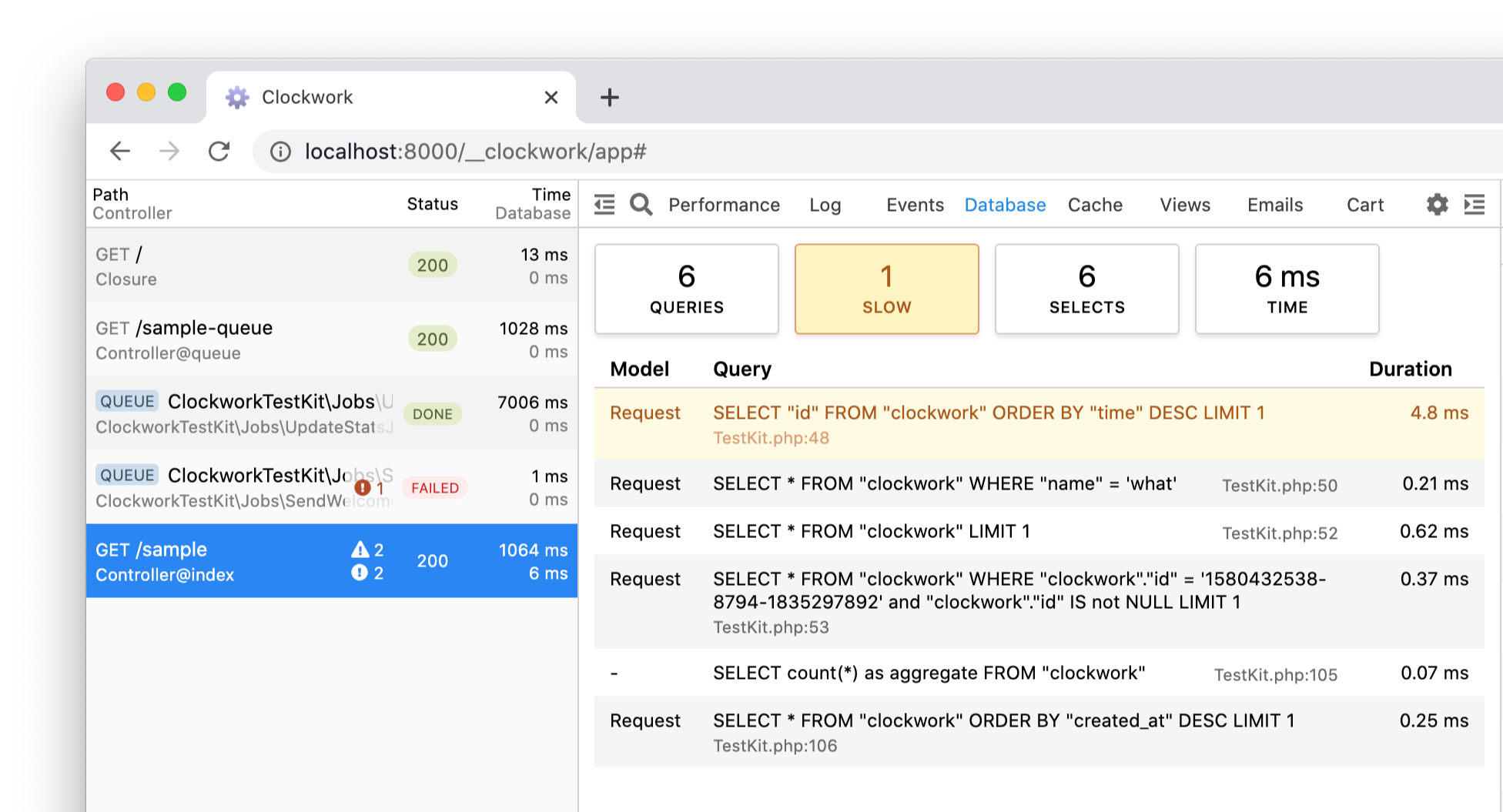Here I’m going to show how to use Clockwork to debug and profile php without dumping vars that break your ajax calls (and in case you can’t use xdebug).
Debug with Clockwork
https://github.com/itsgoingd/clockwork
Install Clockwork as extension in your browser Chrome or Firefox
Install Clockwork in your project
$ composer require itsgoingd/clockwork
Open Kirby’s index.php and initialize Clockwork right in the beginning:
<?php
require __DIR__.'/kirby/bootstrap.php';
$clockwork = Clockwork\Support\Vanilla\Clockwork::init(
[
'storage' => 'sql',
// sqlite database will be saved directly in the vendor folder
'storage_database' => 'sqlite:'.__DIR__.'/clockwork.sqlite',
'register_helpers' => true,
'enable' => true,
'storage_expiration' => (24 * 60),
'requests' => [
'except' => [
// '/api/*/lock',
// '/api/*/unlock',
],
],
'filter_uris' => [
'.*/lock',
'.*/unlock',
'/api/auth',
],
]
);
All options are described here: https://github.com/itsgoingd/clockwork/blob/master/Clockwork/Support/Vanilla/config.php
At the end of the index file, where you render the CMS, write the output in a variable, end the Clockwork process and then echo the Kirby output.
// echo (new Kirby)->render();
$output = (new Kirby)->render();
clock()->requestProcessed();
echo $output;
Next you go into your Kirby config.php file to setup a route for Clockworks API:
return [
'debug' => true,
'routes' => [
[
'pattern' => '__clockwork/(:any)',
'action' => function ($all) {
clock()->returnMetadata($all);
exit;
},
],
],
// this is just a neat way to see what events are called, in which order.
'hooks' => [
'*' => function ($event) {
clock()->debug($event->name());
},
],
];
Now in your php scripts you can measure processing time https://underground.works/clockwork/#docs-timeline:
clock()->startEvent('twitter-api-call', "Loading user's latest tweets via Twitter API")
// some long running process
clock()->endEvent('twitter-api-call')
and get some fancy bar graphs
or log variables https://underground.works/clockwork/#docs-logging:
clock()->debug('writeContent', [$data,$this->getTableColumns()]);
and get insight in your code.
If someone has more knowledge of Kirby’s internals, maybe this can become a plugin, that is able to profile Kirby’s performance of folders/files I/O and database calls.

